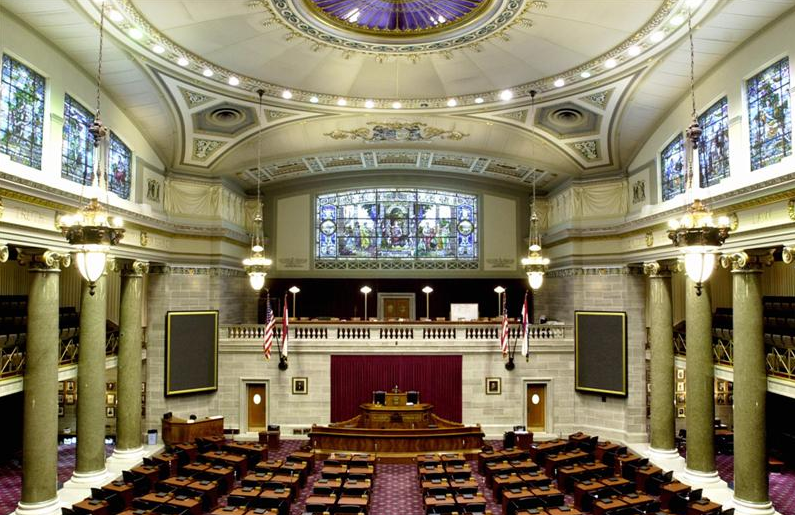JEFFERSON CITY, Mo. — Missourians would be required to designate their party affiliation and only be allowed to mark a ballot for that particular party during primary elections, under legislation proposed by Republican lawmakers.
Reps. Jered Taylor and Dan Stacy are seeking to create a closed primary voting system in the Show-Me State.
A variety of stakeholders voiced multiple concerns about Stacy’s HB 26 at a public hearing in early February. After that hearing, Taylor sought to address the issues raised with the original legislation and come up with an improved version of that bill.
That reworked bill, HB 922, was before the House Elections and Elected Officials Committee on Wednesday morning.
“We want people who have a vested interest in Republican principles to vote for Republicans. We want people with a vested interested in Democrat principles to vote for Democrats,” said Taylor.
One Republican lawmaker, who testified for informational purposes only, said that in his primary, he won one county by a significantly narrower margin than expected. Rep. Jeff Shawan said that he learned afterward there was an organized opposition that decided to vote for his primary opponent because they believe the other candidate would be easier for the Democratic candidate to compete against.
Under the proposed legislation, candidates for office must be affiliated with the party they plan to run as for at least six months prior to the last Tuesday in February of that election year.
Voters would need to register their party affiliation 23 weeks before the primary election. Missourians would only be allowed to vote in a primary election for candidates in that party. Those who have not registered an affiliation would only be able to draw an unaffiliated ballot.
“For the state [Representative] and above candidates, this is probably the best way to arrive at a candidate for those particular offices,” said Rep. Peggy McGaugh. “However, many, many local elections are decided in the primary. And this will definitely, definitely affect those unaffiliated voters…”
She voiced concern that for local elections it has disenfranchised those that vote based on who the candidates are instead of which parties they represent. McGaugh noted that folks will vote for the person they go to church with, who is a family member, or a neighbor and that candidate will not necessarily be in the same party they traditionally side with.
Going further, McGaugh presented the scenario that if a person chooses to be unaffiliated, or who missed the changes for whatever reason and has no party designated, shows up to the polls for a primary, they could end up with nothing to vote on if there are no ballot measures and no unaffiliated candidates.
“That person leaves the precinct without voting,” said McGaugh.
“But they made their choice. That choice was made because they didn’t choose to affiliate with a party,” said Taylor. “That is not the fault of the bill…unfortunately if you choose or you decide not to make a decision, then there are consequences in life for decisions you don’t make.”
They went on to say that he doesn’t think it is accurate to say the proposal would disenfranchise voters because there will be no one who will not get the opportunity to vote. Missourians simply may not get to vote in the party they want to vote in.
Rep. Dan Shaul, who chairs the committee, noted that they don’t think that the current system is broken but that closed primaries would be a way to make the system better.

Alisha Shurr was a reporter for The Missouri Times and The Missouri Times Magazine. She joined The Missouri Times in January 2018 after working as a copy editor for her hometown newspaper in Southern Oregon. Alisha is a graduate of Kansas State University.










